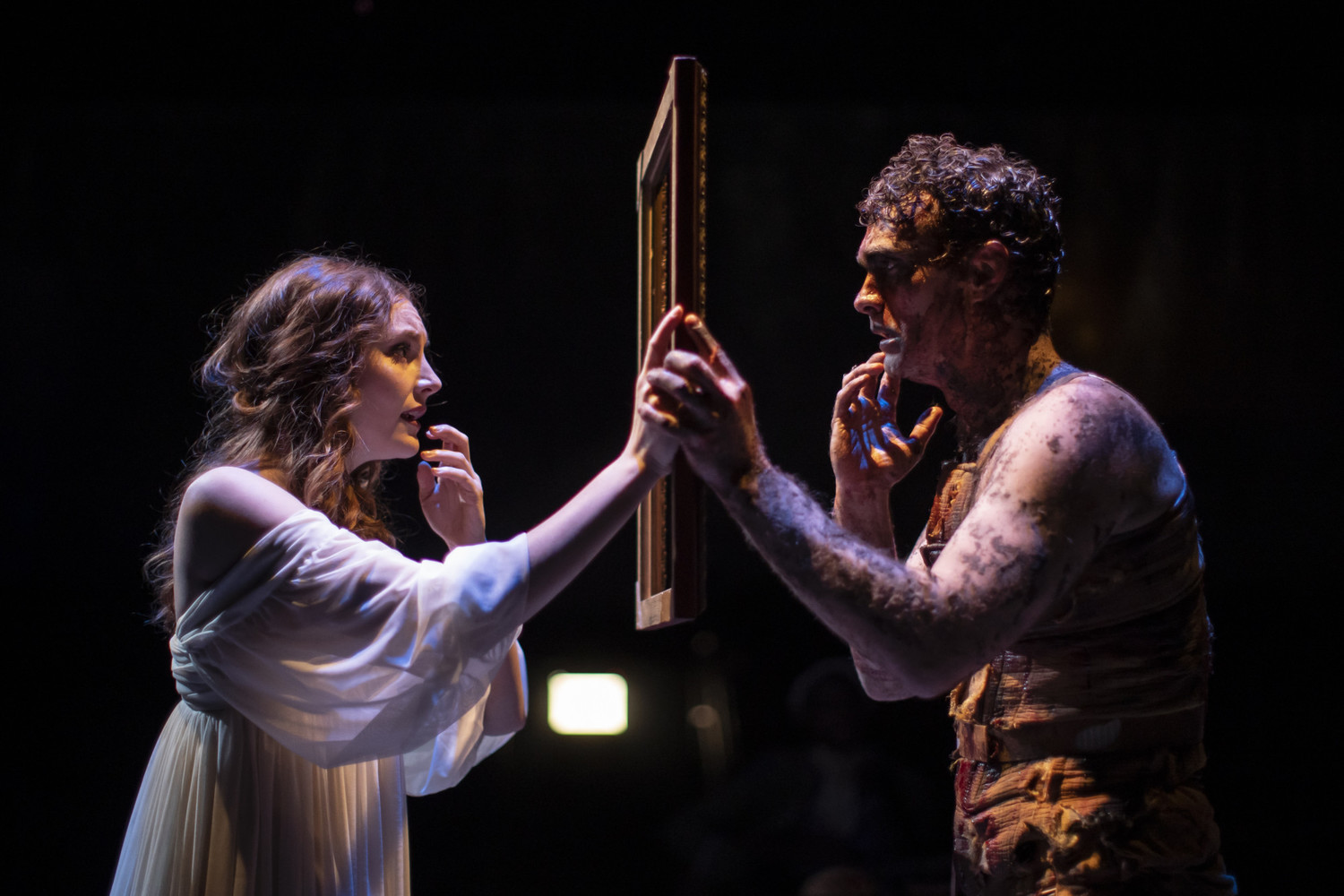Review: MARY SHELLEY'S FRANKENSTEIN at Lookingglass Theatre Company

With Lookingglass Theatre Company being the fourth Chicago theater to produce a Frankenstein adaptation over the past year in celebration of the novel's 200th anniversary, audiences may well ask what more can be said about this classic tale. Rest assured: in MARY SHELLEY'S FRANKENSTEIN, writer and director David Catlin offers a unique and poignant perspective by placing the author herself, a highly imaginative and emotionally vulnerable teenager, center stage. Artist and artwork become intricately entwined as Mary Shelley (Cordelia Dewdney) pours her personal pain into a work of fiction that has captivated readers for centuries.
Catlin frames the narrative as a play within a play, based on actual events. In the summer of 1816, Mary traveled to Lake Geneva with her lover and future husband, Percy Bysshe Shelley (Walter Briggs), and their friends, Lord Byron (Keith D. Gallagher), Dr. John Polidori (Debo Balogun), and Mary's stepsister, Claire Clairmont (Cruz Gonzalez-Cadel). During this vacation, Lord Byron suggested a competition to see which member of the party could spin the best original ghost story. Mary emerged as the winner with her tale of Frankenstein, the scientist whose obsessive quest to learn the secret of creating life leads to devastating ends for himself, his loved ones, and the lost creature he brings into the world.
The five actors double as the Shelleys' party and the characters in Mary's story. As Mary, Cordelia Dewdney makes an evocative narrator, with a rich voice and expressive delivery that immediately set a haunting tone for this gothic thriller. Throughout the play, she interrupts her own narrative at key moments when the fictional events hit too close to home. Through veiled references that eventually build to a fuller reveal, we learn about Mary's personal sorrows, each of which finds its way into her story in some form: grief over the mother she never knew, the baby daughter she buried, and her often-strained relationship with Percy. Though the abrupt shifts in action are often disorienting (and deliberately so), the play's structure is an effective illustration of the intimate relationship between an artist and her work.
Visually, this production maintains a dreamlike quality throughout: sometimes idyllic, sometimes nightmarish, but always reinforcing the premise that the story lives in the mind of a precocious young woman. In collaboration with the Actors Gymnasium, with circus design by Sylvia Hernandez-DiStasi, the actors move through a number of graceful acrobatic and dance sequences that will be familiar to those who have seen the company's signature LOOKINGGLASS ALICE. Complemented by a stellar design team, striking images abound, such as a recreation of Leonardo da Vinci's "Vitruvian Man" featuring Frankenstein (Briggs) and an idealized vision of his creation. In another memorable sequence, which occurs only in Frankenstein's mind, the creature (Gallagher) and his female counterpart (Dewdney) dance through an Eden-like paradise, culminating in a second fall of man that spatters the stage with blood.
Keith D. Gallagher, or rather, Gallagher as Lord Byron, gives a heart-breaking performance as Frankenstein's creature, although aficionados of the novel will find many elements of his story rushed. This production is concerned less with the development of the creature as an individual character than with his relationship to both of his creators: Frankenstein and Mary Shelley herself. Initially, Frankenstein envisions himself as both a godlike creator and a father figure to his creation, an ideal that makes it feel even crueler when he rejects the actual living being. Mary seems to act as a mother figure as she narrates the creature's tale, while at other times she relates more directly to the creature himself. Like the creature, she experienced a father's rejection (when she ran away with Percy) and extreme loneliness (during her turbulent relationship with Percy and their loss of several children).
Ultimately, this is Mary Shelley's story: that of a young woman, experienced beyond her years and familiar with grief, yet able to channel that pain into remarkable creativity. The ending, though not to be revealed here, is equally chilling, surprising, and moving. David Catlin and his team are to be commended for finding a compelling angle that sheds fresh light, or perhaps casts new shadows, on this iconic thriller.
MARY SHELLEY'S FRANKENSTEIN runs through August 4 at Lookingglass Theatre Company, 821 N. Michigan Avenue, Chicago, IL 60611. Tickets are available at 312.337.0665 or lookingglasstheatre.org.
Photo by Liz Lauren
Review by Emily McClanathan
Reader Reviews

Videos
